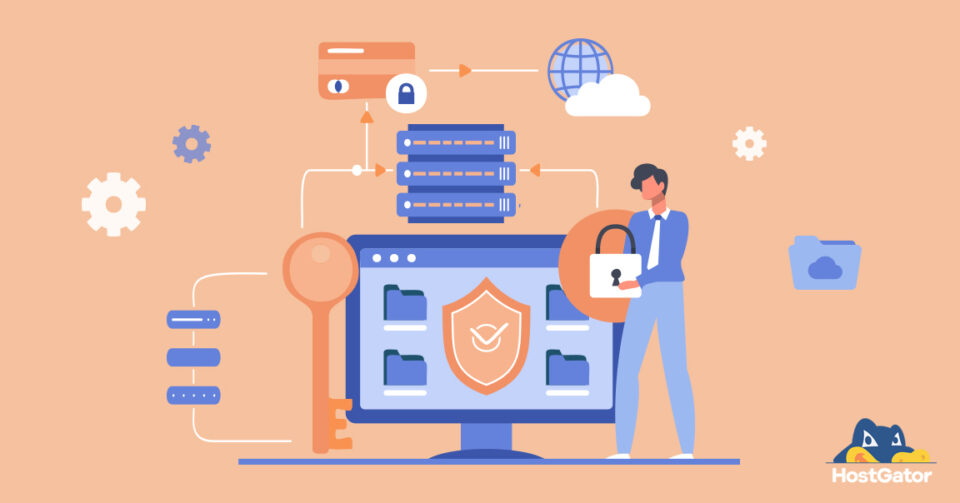In the modern era of digital technology, prioritizing website security is of utmost importance. Given the ever-evolving landscape of cyber threats, guaranteeing the safety of your website hosting is vital to protecting your data, preserving your reputation, and maintaining the confidence of your users. Regardless of whether you operate a small business or oversee a sizable enterprise website, it is imperative to enact strong security protocols. Here are six recommendations to assist you in effectively securing your website hosting.
Choose a Reliable Hosting Provider
Selecting a reputable hosting provider is the first step towards securing your website. Opt for a provider with a track record of reliability and a strong emphasis on security. Look for features such as regular security updates, firewall protection, intrusion detection systems, and DDoS mitigation capabilities. Research customer reviews and inquire about the provider’s security protocols before making a decision. A reliable hosting provider will offer a secure infrastructure, reducing the risk of potential security breaches.
Keep Software Up to Date
Regularly updating your website’s software is fundamental to maintaining its security. This includes not only your content management system (CMS) such as WordPress, Joomla, or Drupal but also any plugins, themes, and other applications used on your site. Outdated software is a common target for hackers as it often contains vulnerabilities that can be exploited. Set up automatic updates whenever possible and stay informed about security patches released by the software developers. By keeping your software up to date, you can patch known vulnerabilities and strengthen your website’s defences against cyber threats.
Implement SSL Encryption
Secure Socket Layer (SSL) encryption is essential for protecting the data transmitted between your website and its visitors. SSL certificates encrypt sensitive information such as login credentials, payment details, and personal data, preventing unauthorized access by hackers. Additionally, SSL encryption helps establish trust with your audience by displaying a padlock icon and “https://” in the browser’s address bar, indicating a secure connection. Many hosting providers offer free or affordable SSL certificates, making it easy to implement SSL encryption on your website. By encrypting data in transit, you enhance the security of your website and safeguard the privacy of your users.
Utilize Strong Authentication Measures
Implementing strong authentication measures is crucial to prevent unauthorized access to your website hosting account. Instead of relying solely on passwords, consider using multi-factor authentication (MFA) to add an extra layer of security. MFA requires users to provide multiple forms of identification, such as a password combined with a one-time code sent to their mobile device or email address. This greatly diminishes the chance of unauthorized entry, even in cases where passwords have been compromised. Additionally, encourage users to choose strong, unique passwords and regularly update them to further enhance security. By implementing robust authentication measures, you can mitigate the risk of unauthorized access to your website hosting account.
Regularly Back Up Your Data
Regularly backing up your website data is essential for mitigating the impact of security incidents such as data breaches or server failures. In the event of a cyber attack or accidental data loss, having recent backups allows you to restore your website quickly and minimize downtime. Choose a hosting provider that offers automated backups and stores backup copies securely, preferably off-site or in the cloud. Test your backups regularly to ensure they are complete and functional. By maintaining up-to-date backups of your website data, you can recover quickly from security incidents and maintain business continuity.
Monitor and Respond to Security Threats
Vigilant monitoring is key to detecting and responding to security threats effectively. Implement security monitoring tools that provide real-time alerts about suspicious activity, such as unauthorized login attempts, malware infections, or unusual traffic patterns. Regularly review server logs, website traffic, and security reports to identify potential threats and vulnerabilities. In the event of a security breach, have a response plan in place to contain the incident, mitigate damage, and restore normal operations promptly. Consider enlisting the help of security experts or managed security services to augment your capabilities and ensure a swift and effective response to security threats.
Conclusion
Be it VPS hosting or any other hosting type, securing your hosting is paramount to protecting your data, reputation, and the trust of your users. By choosing a reliable hosting provider, keeping software up to date, implementing SSL encryption, utilizing strong authentication measures, regularly backing up your data, and monitoring and responding to security threats, you can enhance the security of your website effectively. Remember that cybersecurity is an ongoing process, and staying vigilant is essential to staying ahead of evolving threats. Invest in robust security measures today to safeguard your website against potential risks tomorrow.

